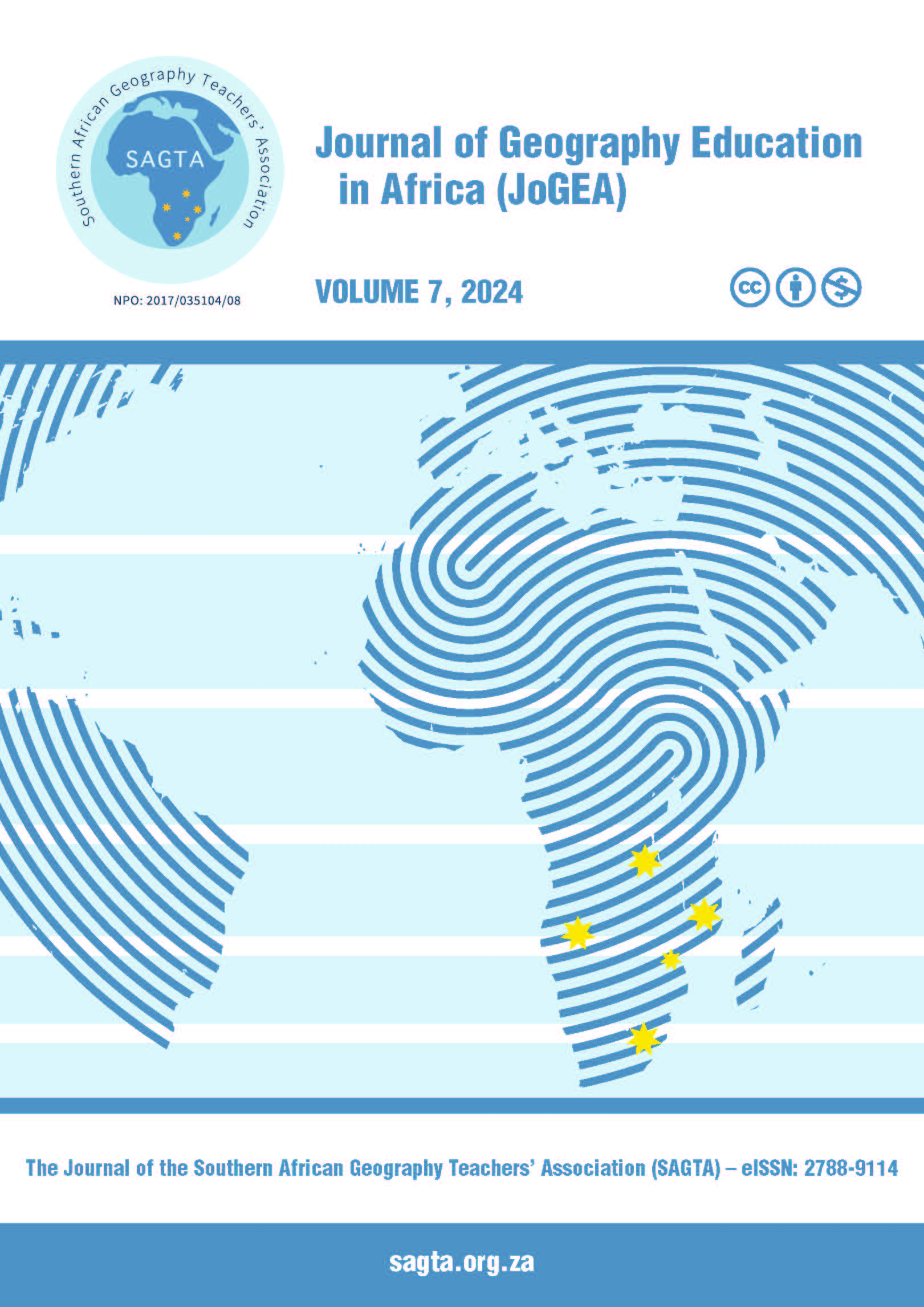Navigating Learning: Teaching Map Skills in Grade 6 Social Sciences
DOI:
https://doi.org/10.46622/jogea.v7i1.5407Keywords:
cultural historical activity theory, social sciences, map literacy, spatial thinking, primary school geography teachingAbstract
Understanding and effectively using maps and graphs is crucial for navigating our multi-dimensional world. However, several studies confirm poor map reading and interpretation skills among learners globally. This study explored Grade 6 teachers’ experiences in teaching map skills in four primary schools in Gauteng Province, South Africa, using Engeström’s (2001) cultural-historical activity theory (CHAT) to identify their teaching challenges. A generic qualitative research design captured the essence of teachers’ experiences, with thematic analysis revealing two key themes that focus on the challenges and opportunities in transforming abstract map concepts into real-world understanding. Varying levels of teachers’ pedagogical content knowledge, time constraints, and ongoing professional development impact how map skills are taught. CHAT effectively highlighted contradictions, which are essential for driving growth and creating new learning opportunities. Teacher agency was crucial for growth and change, as teachers recognised their learning gaps and sought support from other teachers in their networks.
Downloads
Published
Issue
Section
License
Copyright (c) 2024 Prof S Ramsaroop, Ms AM Kwayi

This work is licensed under a Creative Commons Attribution-NonCommercial-ShareAlike 4.0 International License.


